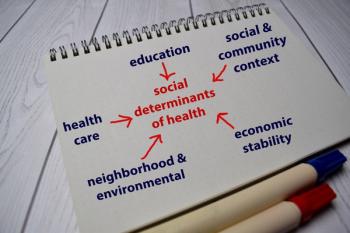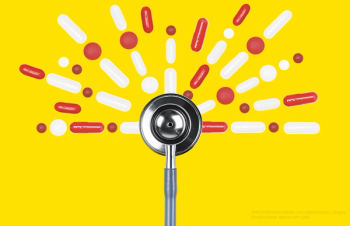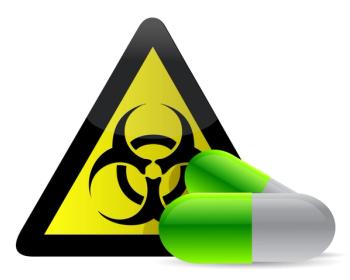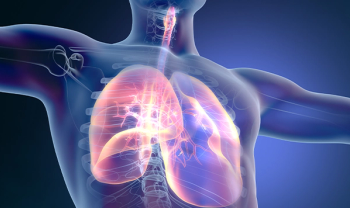
The leverage of "must-have" hospitals is one explanation for high relative prices. The researchers said private payers should support policies that encourage competition and fend off consolidation among payers.

The leverage of "must-have" hospitals is one explanation for high relative prices. The researchers said private payers should support policies that encourage competition and fend off consolidation among payers.

Beyond the toll the novel coronavirus has taken on our friends and loved ones, COVID-19 has brought to light how our healthcare system has been challenged in the face of a pandemic and a surging influx of patients.

COVID-19 has revealed the importance of the social determinants of health.

The pandemic has had dramatically different consequences for the finances of payers and providers.

In this week's episode of Tuning Into the C-Suite, MHE's Briana Contreras speaks with Adam Sabloff, CEO of VirtualHealth, about the current transformation of value-based care and what he thinks the future may look like for value-based care after COVID-19 and the presidential election.

Patient navigators, following an algorithm and using telephone calls to contact patients, improved ACE inhibitor and beta blocker usage among heart failure patients.

How health plans and providers can work together for better outcomes via a data-driven approach that streamlines the prescribing and procurement process.

American Society of Anesthesiologists opposes drastic payment reduction for critical services.

The top-selling diabetes drug will join semaglutide (Ozempic), which is approved to reduce the risk of major adverse cardiovascular events.


Financial Toxicity is a growing concern for many cancer patients and caregivers, and with the continued rise in treatment costs, it can no longer be ignored.

The treatment is the first anti-PD-1 antibody from China to receive Breakthrough therapy designation.

Drugs block the formation of tiny blood vessels in the retina that are prone to breaking open, resulting in bleeds that can cause serious vision impairment and blindness, explains ADA chief scientific and medical officer, Robert Gabbay, in this conclusion of a four-part video series.

Emory University researchers found that financial toxicity may be a more serious problem for multiple sclerosis patients than for cancer patients.

The American Medical Association and American Heart Association reaffirm commitment to working together to equip physicians and all Americans, particularly communities of color, with resources to lower blood pressure rates across the country.

Fatigue causes a complex array of problems for people with autoimmune disease.

Less than half of Americans with diabetes get annual eye exams, says Robert Gabbay, M.D.,Ph.D., FACP, in this third of a four-part video series. Gabbay became chief scientific and medical officer for the American Diabetes Association this summer.

In this second of a four-part video series, ADA Chief Science and Medical Officer Robert Gabbay, MD, PhD, FACP, says data showing kidney benefits of SGLT2 inhibitors may indicate protection against retinopathy but research is needed.

The American Diabetes Association and other groups are mounting a public health campaign to encourage people with diabetes to get annual eye exams. ADA Chief Scientific and Medical Officer Robert Gabbay, MD, PhD, FACP, explains "leaky blood vessels" and diabetic retinopathy in this first of a four-part video series.

Data presented on a pair of Novartis MS therapies during MSVirtual2020.

Trials taking place fall 2020, the study subset will focus on favipiravir’s potential to reduce viral shedding, diminishing the period of infectiousness.

Workplace stress is an inevitable part of business, but when stress gets out of hand, it’s bad for business and the people who do the work.

The symptoms of the adverse event that led to the pause in Astra Zeneca's COVID-19 vaccine trial are reportedly consistent with transverse myelitis. although the diagnosis has not been confirmed.

As the flu season approaches during the COVID-19 pandemic, Justin Zaghi of Heal says the flu shot is more important than ever this year for a few reasons.

According to a report by L.E.K Consulting, challenges are unlike other industries’, and adoption of artificial intelligence may be slow. Telemedicine accelerated by COVID-19 could drive uptake.

In this week’s episode of Tuning Into the C-Suite podcast, MHE's Briana Contreras spoke with Sebastian Seiguer, CEO of emocha Mobile Health. The two talked about the key health challenges schools are facing as some are reopening across the country for the '20-'21 school year, how telehealth services like emocha are successfully using telehealth to open schools in a Return to Learn program, and paths forward for our nation’s largest school districts.

The New York Times is reporting that a study volunteer in the U.K. developed transverse myelitis.

One code covers additional supplies and clinical time related to safety protocols. The other covers antibody testing.

Pharma makers expect the treatment to be available within a week.

The COVID-19 pandemic is transforming the way the healthcare industry hands payments.